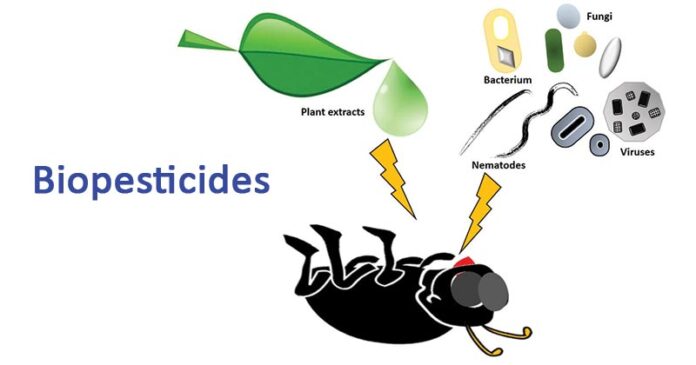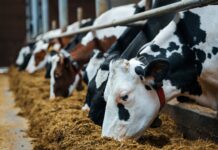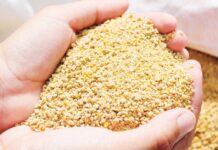A recent study conducted by the strategic consulting and market research firm, BlueWeave Consulting, revealed that the India Biopesticides Market was worth USD 88.2 million in the year 2021. The market is projected to grow at a CAGR of 11.7%, earning revenues of around USD 191.58 million by 2028. The India Biopesticides Market is booming because of the expanding Indian agriculture sector. Moreover, the market for biopesticides is predicted to grow as an eco-friendly alternative to hazardous chemical pesticide sales rise. Moreover, growing interest in crop protection and increased demand for organic and biological goods could fuel business expansion. Furthermore, India Biopesticides Market is one of the most emerging markets that grow continuously owing to the fast integration of new technologies such as the Internet of Things (IoT), Artificial Intelligence (AI), cloud computing, and others. However, the high cost of biopesticides and farmers’ lack of knowledge about the benefit of biopesticides, in turn, may act as a huge restraining factor for the market growth.
Growing Usage of Biopesticides
With rising food safety awareness among households and rising environmental concerns, the Government of India banned around 18 active chemical ingredients in 2019, including ammonium sulphamate, azinphos-ethyl, and dicrotophos, which are widely used to control plant pests across the country. The pesticide ban in developed countries is also likely to have an impact on the Indian agricultural commodity export market, leading to a further pesticide ban in the country in the coming years. For example, rice exports from India to European countries fell by 40% in 2018, as rice samples failed to meet the European region’s minimum residue level. Such factors are likely to increase the country’s use of biopesticides.
Pesticide Usage Restrictions
The regulations enacted by Indian governments prohibit the use of conventional chemical pesticides such as ammonium sulphamate, azinphos ethyl, dicrotophos, and others. Because pesticides are extracted from natural materials such as animals, plants, bacteria, and certain minerals, these regulations are expected to aid in the growth of the biopesticides market. The ban on certain pesticide chemical ingredients is expected to have an impact on crop exports from India to other countries, including Europe. For example, the United States terminated its agreement with India’s Agricultural and Processed Food Products Export Development Authority in 2020. (APEDA). For instance, due to restrictions on certain chemicals, the export volume of rice decreased from 2018 to 2019, and it is expected that the use of biopesticides helped rice producers in increasing the export quantity in 2021. As a result of regulations governing the use of chemicals in crop protection, the use of biopesticides is expected to rise during the forecasted period.
Request for Sample Report @ https://www.blueweaveconsulting.com/report/india-biopesticides-market/report-sample
Challenge: Test Requirements for Biosafety
the limitation is the requirement for bio-safety testing of microorganisms before registration and propagation of biopesticides. Many universities and research institutions that conduct the initial research and development of biopesticides are unable to cover the additional costs of extensive safety and allergy testing. Allergies to fungi such as Trichoderma, Metarhizium, Anisophliae, Beauveria, and Bassiana, for example, have been reported in immunocompromised patients, and sometimes strains safe for humans have been found to alter soil microbes, according to the review. The requirement for a comprehensive battery of tests stifles commercialization, relegating several promising strains developed in India’s publicly funded research institutions to the shelf.
Segmental Coverage
Based on crop type, the Indian Biological Crop Protection Market is segmented into Cereals, Oilseeds, Fruits & Vegetables, and Others. Among these, the fruit and vegetable segment dominates the market owing to the increasing concern for health and diet among consumers. Also, the rising demand for high-quality nutritional fruits and vegetables drives the demand for biopesticides. Moreover, wheat, rice, and corn are majorly consumed across the country. Thus, demand for biopesticides for cereals is expected to rise in the coming years. All these factors are anticipated to propel the growth of the India Biological Crop Protection Market during the forecast period (2022-2028).
Impact of COVID-19 on Saudi Arabia Automotive PCB Market
This market was impacted by the COVID-19 pandemic due to supply chain disruptions. The alarming increase in COVID-19 cases prompted manufacturing and transportation restrictions, resulting in severe supply chain disruptions and delivery delays. Furthermore, stock shortages may impede sales and industry progress. To avoid virus spread and balance costs, manufacturers use reduced capacities, automated production techniques, part-time shifts, and advanced sanitization. However, the market, on the other hand, is improving and is likely to return to normal as the government’s assistance grows. During the forecast period, this factor may boost market progress.
Competitive Landscape
The leading market players in the India Biopesticides Market are Biotech International Limited, Tagros Chemical India Pvt. Ltd, Koppert Biological Systems India Pvt. Ltd., Nav Agro Pvt. Ltd, Kilpest India Ltd, Ajay Bio-Tech (India) Ltd, Som Phytopharma (India) Limited, Sumitomo International, International Panaacea Limited, and other prominent players. The India Biopesticides Market is highly fragmented with the presence of several manufacturing companies in the country. The market leaders retain their supremacy by spending on research and development, incorporating cutting-edge technology into their goods, and releasing upgraded items for customers. Various tactics, including strategic alliances, agreements, mergers, and partnerships, are used.
Contact Us:
BlueWeave Research Blog
Phone No: +1 866 658 6826
Email: info@blueweaveconsulting.com














